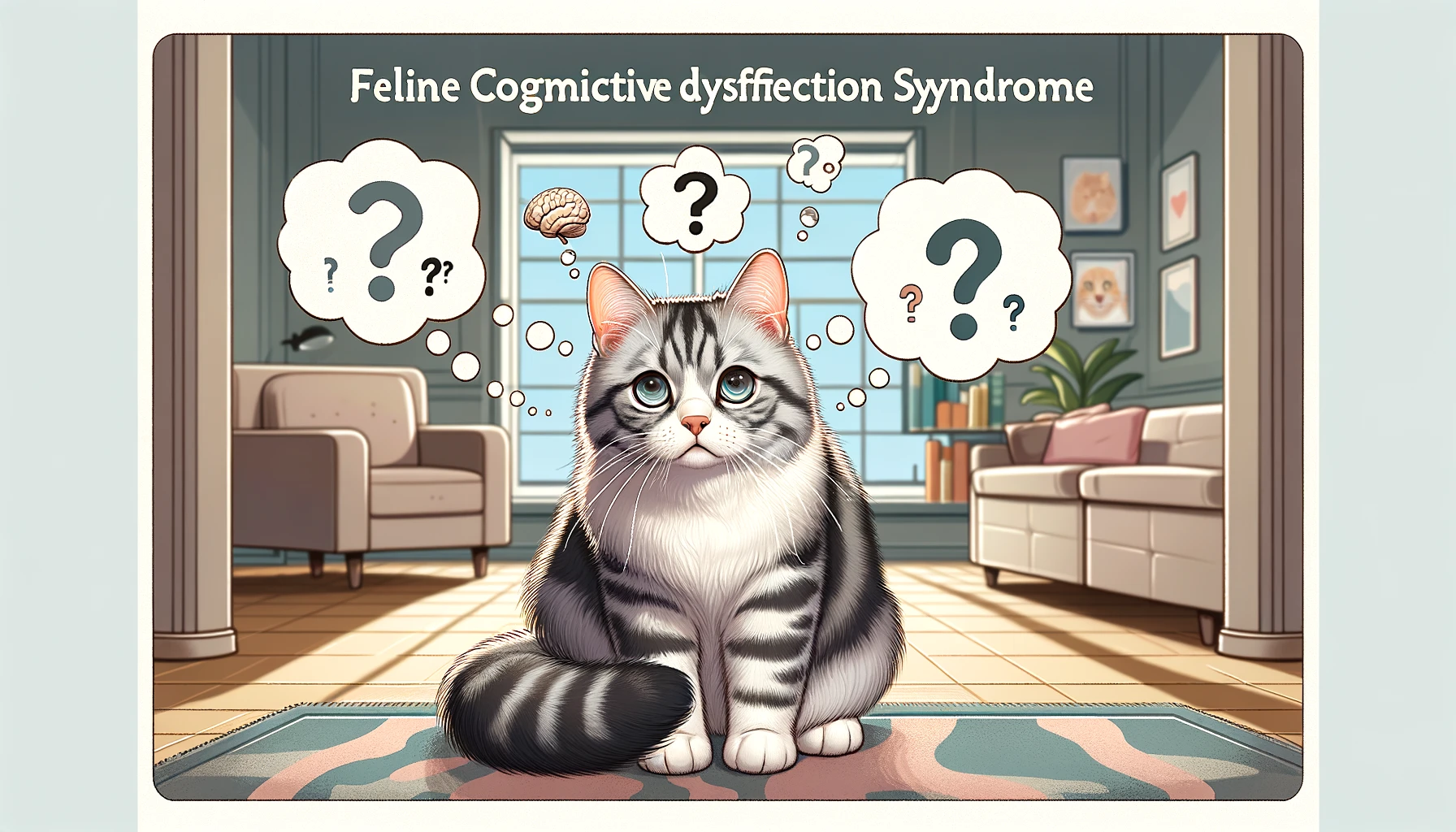Prevention and Early Detection
Strategies for Prevention: Diet, Exercise, and Mental Stimulation
Preventing Feline Cognitive Dysfunction Syndrome (FCDS) involves a holistic approach, focusing on diet, exercise, and mental stimulation. A balanced diet rich in antioxidants and omega-3 fatty acids can support brain health, while regular physical activity and puzzle toys encourage mental agility. These preventative measures, combined with a stimulating environment that includes safe outdoor access or interactive play, can significantly reduce the risk of FCDS in cats.
Importance of Regular Veterinary Check-ups
Regular veterinary check-ups are crucial for early detection of FCDS. Veterinarians can identify subtle behavioral and health changes that could indicate a cognitive decline. Early diagnosis allows for timely intervention, improving the management of FCDS symptoms and enhancing the cat’s quality of life.
Recognizing Early Signs of Cognitive Decline
Recognizing the early signs of cognitive decline, such as disorientation, changes in sleep patterns, and decreased interaction, is vital for proactively addressing FCDS. Awareness and prompt action enable cat owners to seek veterinary advice early, facilitating the implementation of management strategies that can slow the progression of cognitive dysfunction and maintain the cat’s well-being.

Living with a Cat Diagnosed with FCDS
Daily Life and Adjustments for Your Cat
Living with a cat diagnosed with Feline Cognitive Dysfunction Syndrome (FCDS) requires thoughtful adjustments to their daily life. Creating a safe, comfortable environment that minimizes stress and disorientation is key. This might include maintaining a consistent routine, ensuring easy access to food, water, and litter boxes, and providing plenty of comfortable resting areas. Such adjustments help manage symptoms and support the cat’s well-being.
Coping Strategies for Owners
For owners, coping with a cat’s FCDS diagnosis involves education, patience, and self-care. Learning about the condition, connecting with support groups, and setting realistic expectations can alleviate stress. Owners must remember self-care and seek emotional support, ensuring they remain strong and resilient caregivers.
Quality of Life Considerations
Quality of life is a paramount consideration for cats with FCDS. Regular assessments with a veterinarian can help determine the cat’s comfort and happiness levels. Tailoring care to meet the evolving needs of a cat with FCDS, including pain management, dietary adjustments, and environmental modifications, ensures they continue to enjoy a meaningful, contented life despite their diagnosis.
FAQs Related to Feline Cognitive Dysfunction Syndrome
Q1.What are the first signs of FCDS to look out for?
The first signs include disorientation, changes in sleep patterns, altered interactions with humans or other pets, and decreased activity levels.
Q2.How is FCDS diagnosed?
FCDS is diagnosed through a combination of veterinary examination, medical history assessment, and ruling out other conditions with similar symptoms.
Q3.Are there any treatments available for FCDS?
While there is no cure for FCDS, treatments such as dietary adjustments, medications, and environmental modifications can manage symptoms and improve quality of life.
Q4.How can I make my home more comfortable for a cat with FCDS?
Enhance your home’s comfort by maintaining a stable routine, minimizing environmental stressors, and ensuring easy access to necessities like food, water, and litter boxes.
Conclusion
Feline Cognitive Dysfunction Syndrome represents a significant aspect of feline aging that demands attention, understanding, and compassion from cat owners and veterinarians alike. We can support our aging feline friends through their golden years through early detection, informed management strategies, and a commitment to maintaining the highest possible quality of life. By embracing preventive measures, adapting our homes, and employing available treatments, we address the challenges of FCDS and deepen the bond with our beloved pets, ensuring their twilight years are as comfortable and fulfilling as possible.
